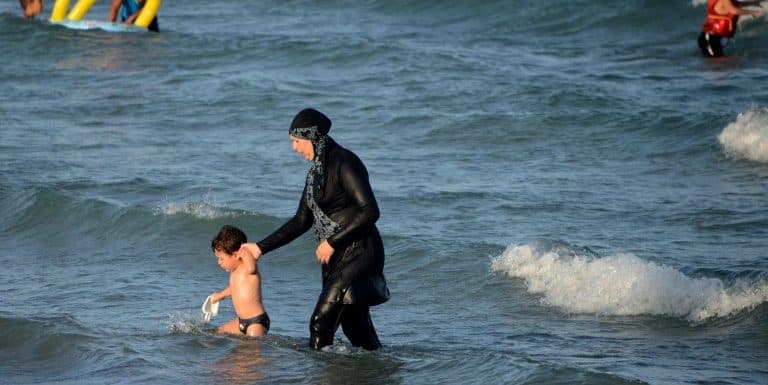Nice: Nice has become the latest French seaside resort to ban the burkini, the body-concealing Islamic swimsuit that has sparked heated debate in secular France, city officials said on Friday.
Using language similar to bans imposed in a string of other towns on the French Riviera, the city barred apparel that “overtly manifests adherence to a religion at a time when France and places of worship are the target of terrorist attacks”.
The ban in Nice referred specifically to last month’s Bastille Day truck attack in the city that claimed 85 lives as well as the murder 12 days later of a Catholic priest near the northern city of Rouen.
Fifteen towns in the southeast, as well as others elsewhere in France, have already banned the burkini including nearby film festival host city Cannes, where three women were each fined 38 euros ($43) under the ban at the weekend.
Valls came under fire after saying Wednesday that the burkini was “not compatible with the values of France and the Republic”.
The Socialist premier cited the tensions in France after the jihadist attacks to justify his support for the mayors who barred a garment that he said was “founded on the subjugation of women”.
France’s Human Rights League accused Valls of “participating in the stigmatisation of a category of French people who have become suspect by virtue of their faith”.
Burkinis are a rare sight on French beaches, where a small minority of Muslim women can be seen bathing in ordinary clothes and wearing headscarves.
Islamic dress has long been a subject of debate in France, which was the first European country to ban the Islamic face veil in public in 2010, six years after outlawing the headscarf and other conspicuous religious symbols in state schools.
AFP

